On Thursday, October 16th, I drove by the Morehead City visitors center looking for a sergeant major (Abudefduf saxatilis) that frequents the floating docks. Although I failed to find that damsel, I did notice a number of gobies swimming around in a storm water retention pond in the parking lot. This struck me as odd, being that it is freshwater, and has no obvious flow into the sound. I really wanted to capture these gobies, however I quickly realized that this was going to be a two person job, and decided to wait for an opportunity to seine the pond. Due to some bad weather, we weren’t able to return until Saturday. Although retention ponds were never really a focus of ours, sighting gobies really got us excited, and the pond definitely did not let us down.

The sheer amount of algae growing in this pond really hindered our efforts, but in the end we pulled seine nets, and dip netted the every square inch, and were incredibly surprised with our catch:
| Eastern Mosquitofish | Gambusia holbrooki |
| American Eel | Anguilla rostrata |
| Fat Sleeper | Dormitator maculatus |
| American Freshwater Goby | Ctenogobius shufeldti |
| Lyre Goby | Evorthodus lyricus |
| River Goby | Awaous banana |
Although the american eel, the mosquitofish, and for the most part, the freshwater goby, are ubiquitous around here, the lyre was a nice surprise. The lyre is not necessarily rare, but it was our first time encountering it.
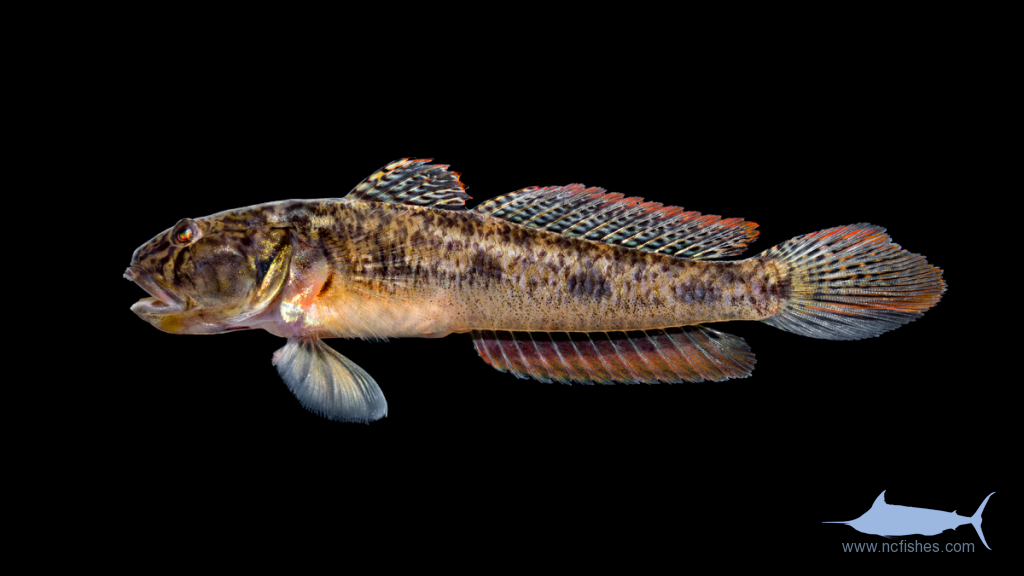
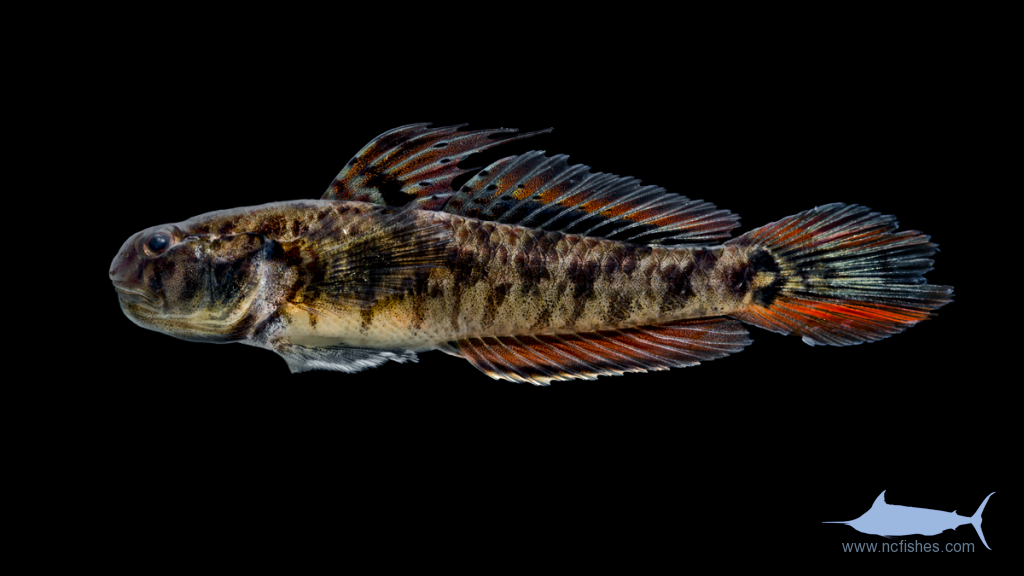
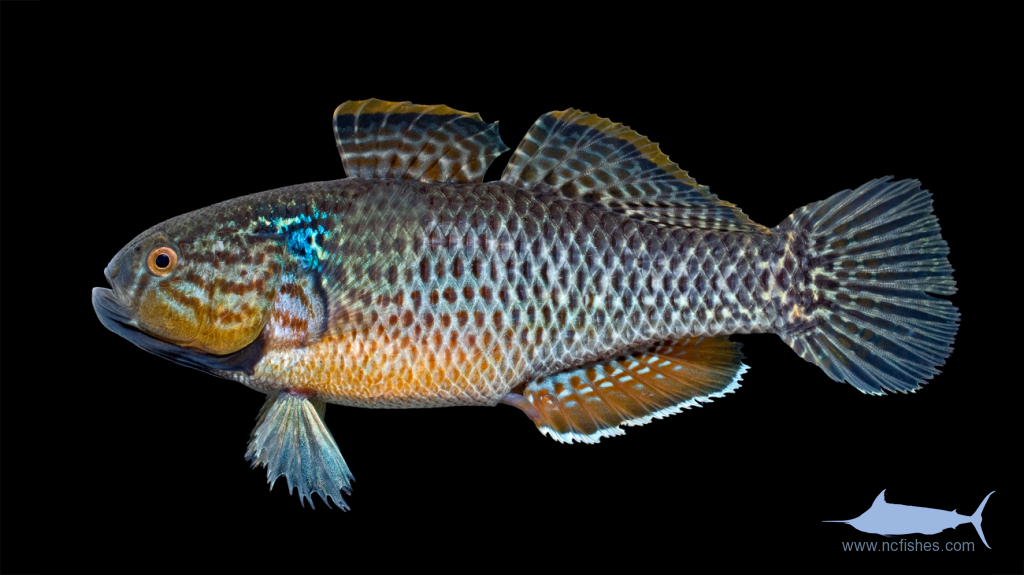
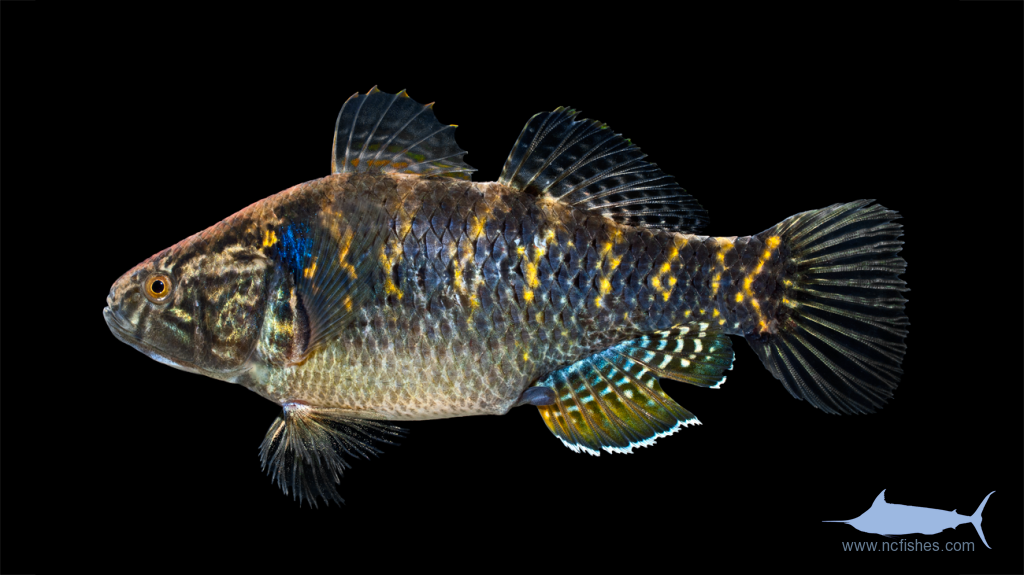
On the topic of rare gobies however, the river goby, A. banana is quite rare in the United States, and it just so happens that Jesse caught one in his dipnet. Other than one specimen collected after a fish kill in a tributary of the Cape Fear River in 1996, our catch is the only other known occurrence of this fish in North Carolina, and is without a doubt the furthest north of any recorded specimen.

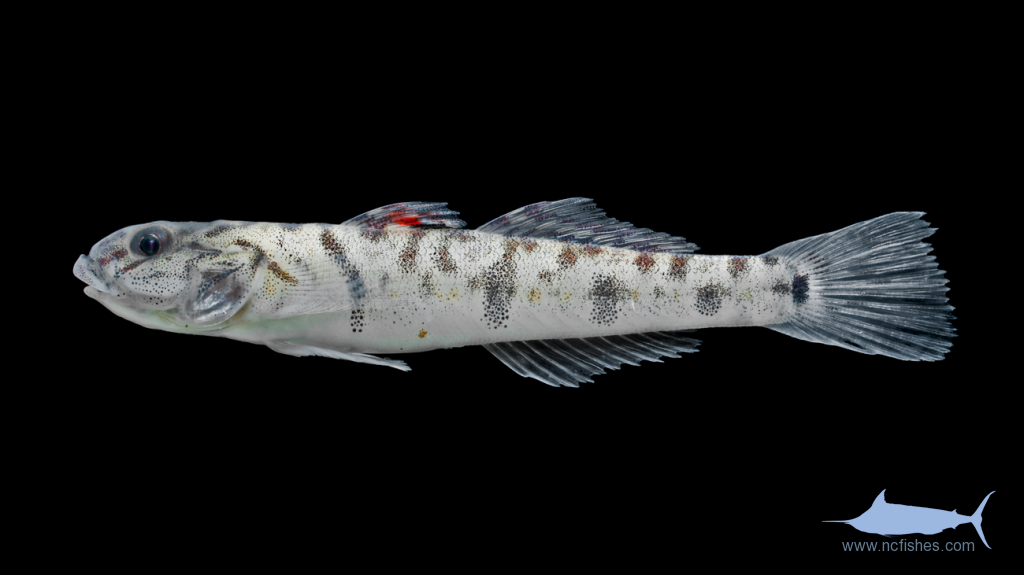
After exploring the pond for a few hours, we determined that the gobies and eels must have entered the retention pond during spring tides that corresponded with rain events, and came up the pond’s overflow that flows into Bogue Sound. This is the only plausible explanation, as the overflows are graded in such a manner as to prevent fishes from reaching the pond during normal weather. Either way, it is a catch for the record books!